Though we often benefit from the hard work being poured into clinical research, we very rarely get a chance to look behind the scenes at the vigorous efforts undertaken by doctors and other medical staff. In Australia, the Centre for Digestive Diseases (CDD) is one of the world’s most valued and important clinics and research centres for gastroenterological diseases which has contributed tremendously to the industry over the years.
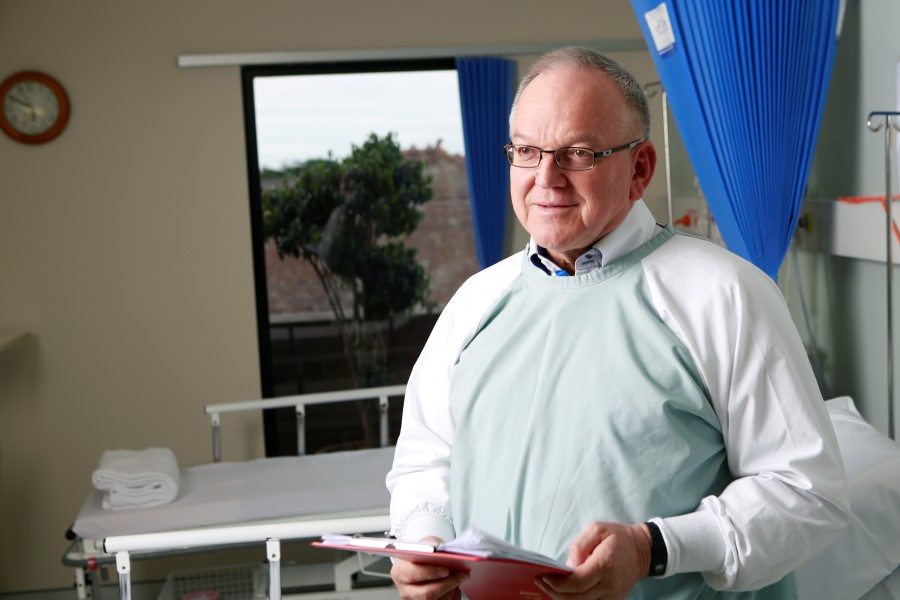
Prof Thomas Borody, CDD’s founder and director, formed the center in 1984 with a unique vision in mind. Aside from diagnosing and treating individual patients, the centre was to have a second, and arguably more important layer of inventing and taking products and services to the market. As a result, the CDD has over 157 patents which are progressively licensed worldwide through close partnerships with medical institutions and the pharmaceutical industry. Unlike a local clinic, which may improve the well-being of a few nearby neighbourhoods, the work at CDD potentially affects millions of people.
Importantly, Prof Borody had an extensive journey before settling down to establish the centre. He worked in a number of different settings, from a 200-bed hospital in the tropical Solomon Islands overseen by a single doctor to the Mayo Clinic with thousands of specialized doctors. According to him, those experiences were eye openers. They helped him see that those educated in medical professions should go above and beyond and never be content or satisfied simply by making money or practicing existing treatments. Innovating is the very essence of moving medicine forward, a philosophy which has been deeply embedded into the CDD’s work.
A strong will to move forwards
This constant drive to innovate and improve is what has set CDD fundamentally apart from similar institutions. Whenever the team identifies an issue, they will sit down, discuss ideas, and resolve it, identifying a potential new treatment. Though they may not always achieve their goal with the initial ideas, they will certainly try their best and improve. They never conform, which means that you will never hear a staff member complaining about not having the correct facilities to work on a new type of equipment or that they lack the necessary knowledge. Whatever the case may be, the members of CDD will continue to strive for continuous improvement, both personally and academically, which is a major reason why the centre is overbooked and has simultaneously managed to develop so many new cures and medical products over the years.
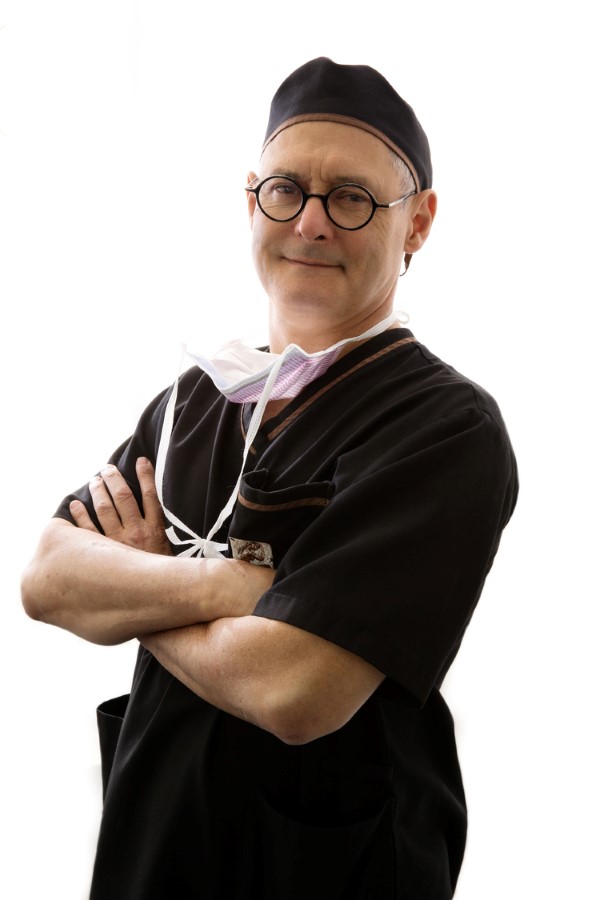
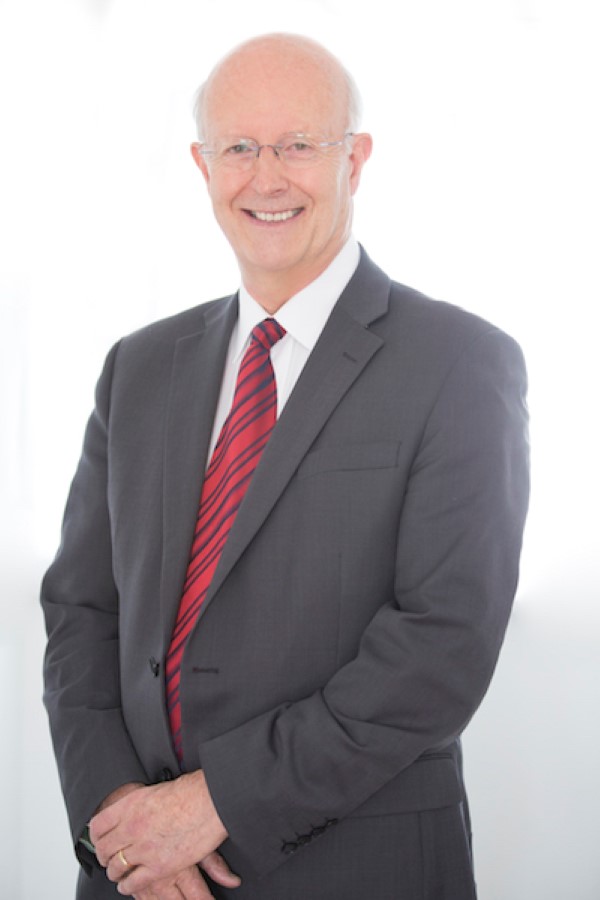
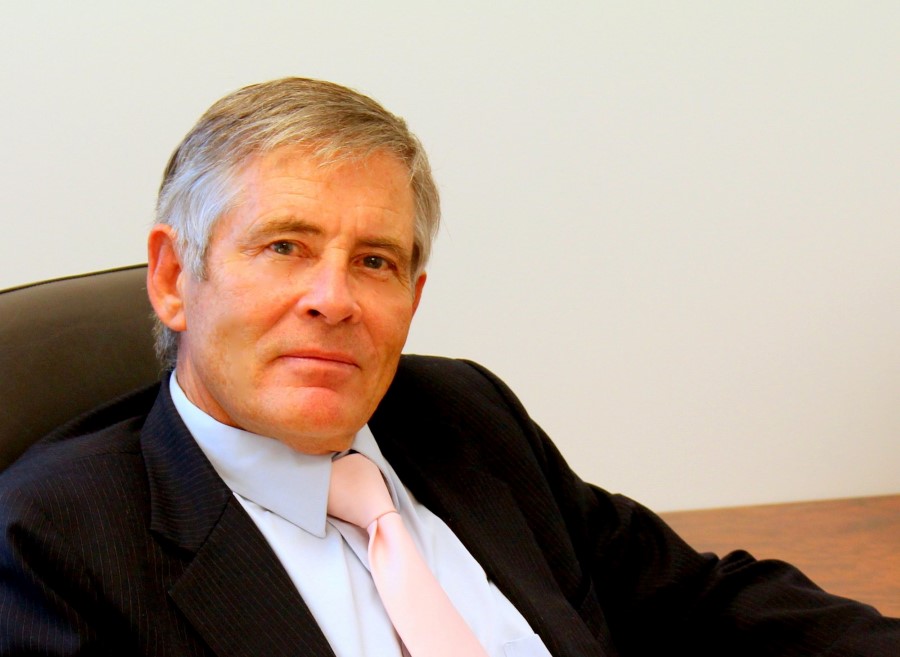
This philosophy not only extends to Prof Borody but actually stems from him as well. During his first years in the centre, the doctor was involved in many inventions. As a direct result, he learnt how to patent and how to create relationships with the pharmaceutical industry. Now, there are physicians coming in as visiting specialists who offer their experience and expertise to an incredible number of patients. Furthermore, companies work in conjunction with CDD to fund new clinical trials and bring new treatments to the market. Prof Borody is deeply involved in these processes as he markets the centre’s products. He also writes and reviews academic papers, visits conferences of the learned Societies and of the Pharmaceutical industry, and makes sure that the products can be made available to the larger community worldwide.
Knowledgeable team, fantastic results
As one might expect from such a facility, the CDD employs people within a wide range of professions. In 1984, the centre had one doctor and 2 nurses. Today, it employs 6 full-time doctors, 50 nurses, an independent research team which currently supports 12 internal projects, accountants, people who deal exclusively with protecting the CDD’s intellectual property, and more. According to Prof Borody, the clinic’s nursing staff is their biggest strength. Many of them are university-educated nurse consultants who are not only involved in the various treatments applied at the clinic but also independently look after patients.
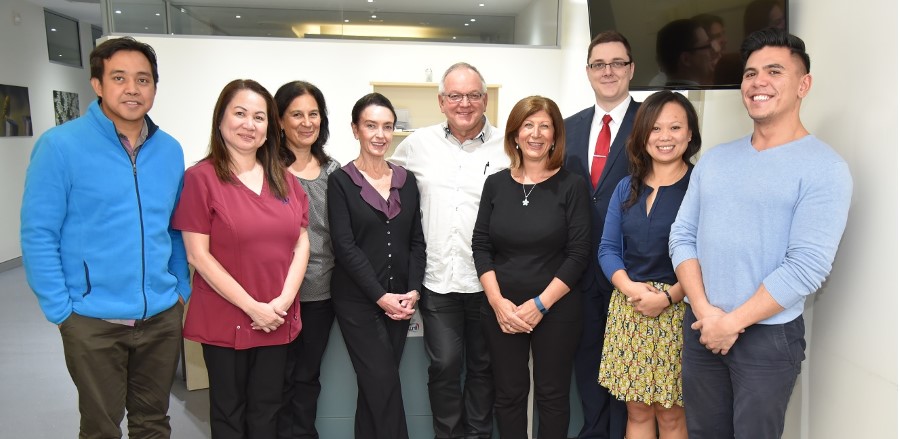
The clinic carries out many Phase 1 and 2 trials of new drugs and methods which then attracts the interest of pharmaceutical companies. Companies may invest upwards of $50 million for Phase 3 tests which are required to gain approval from official regulating bodies such as the Australian TGA, the US FDA, and the European EMA. Prof Borody has been involved in such processes for years so his experience and vast body of knowledge is a tremendous help while their continued success has served the clinic very well in the industry.
Strides in gastroenterology
Aside from research, the clinic is also involved in the treatment of a large variety of gastroenterological diseases and they also perform a number of procedures. These include colon cancer screenings, colonoscopies, panendoscopies, oesophageal dilatation, infrared coagulation, the eradication of H.pylori, and treatments for Crohn’s disease, ulcerative colitis, coeliac disease, and a lot more. Unlike many similar institutions, however, the CDD does not always rely on conventional treatments. An example of that is Helicobacter pylori. Whereas first-line treatments are common in the industry, they are not always successful and alternatives are often scarce ineffective. However, the CDD has developed a second-line and third line treatments with success rates greater than 96 percent, confirmed with published data.
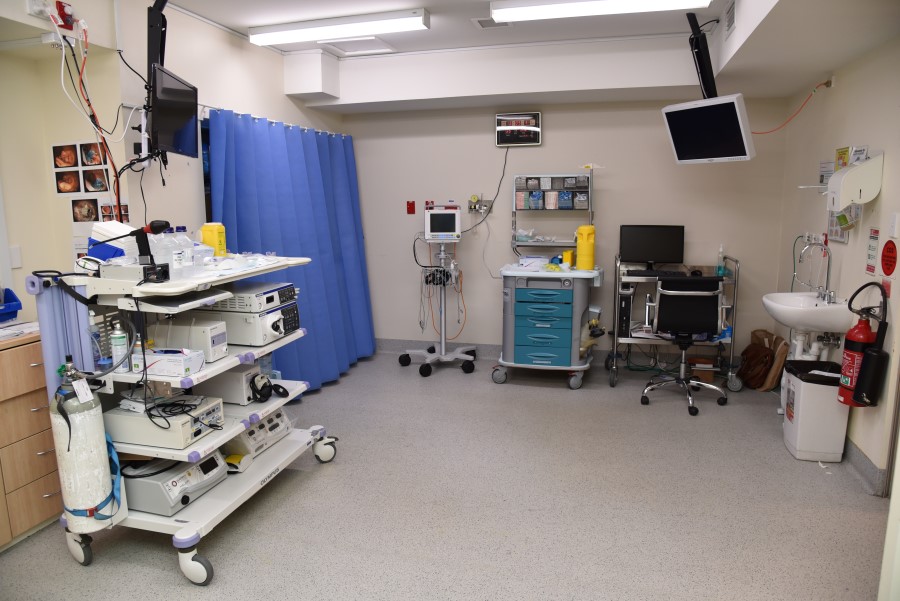
According to Prof Borody, gastroenterology is one of the fields of medicine which has benefitted the most from advancements in technology.
“In the gastroenterology industry, the technology has exploded. One of the reasons why I did gastroenterology was because I could see that, within a few years, we could easily see inside people’s stomachs, bowels, and so forth. The equipment started with the use of fibre optic technology, where very fine glass fibres were used to see distant images. Such fibres could of course could break and you would have those little black spots everywhere. And now we have these very high resolution chips at the end of the colonoscope or endoscope and we see everything in amazing resolution; little polyps, changes in the lining. We also have the ability to biopse cancer from a distance. Together with this, we have imaging like MRI, CT and PET scans that allow us to look within the various layers of the body and diagnose more rapidly”, explains Prof Borody.
Being able to take a close look into the microbiome world has opened up the door to understanding diseases they simply could not have seen before. As a leader of the field, the CDD receives requests for consultation from people all over the world and while the CDD doctors try to accommodate such requests, they have to deny many due to their sheer volume. Thankfully, this explosion in technology has paved the way for incredible innovations in the entire industry which can be transferred to other countries.
Focusing on the future
Right now, Prof Borody is planning on expanding the CDD to a larger facility. For instance, they are planning on having at least five endoscopy rooms in the new location. To put things in perspective, the CDD currently has two endoscopy rooms where they conduct over 1000 procedures per month. The clinic is currently working with consultants who will aid them in the transition which is poised to happen over the next two years.
In addition to that, over the last 20 years Prof Borody has developed a keen interested in the microbiome, the sum total of the gut microbial DNA. This is where the future of gastroenterology is heading. It’s an exploding research area which has incredible potential and the doctor has certainly demonstrated his ability to analyze and invest in areas great potential in this practice. His clinic’s core ideals involve the investment in two main points; people with excellence and projects which will help a lot of people. For example, one of the treatments which is going to have a huge impact on the world is the use of microbial re-colonisation therapy in autism. Autism has been linked to toxigenic gut bacteria so the CDD has been making strides in dedicated treatments which will control symptoms associated with it.
This dedication to the world of science and medicine has certainly paid off for Prof Borody and his team. The CDD continuous to be an inspiration, serving both the local and worldwide communities through hard work, dedication to the craft, and a keen sense of perseverance. Looking towards the future, it’s certain that the centre will continue to thrive under Prof Borody’s guidance and the incredible expertise of his team.
AT A GLANCE
WHO: Centre for Digestive Diseases
WHAT: A Sydney-based clinic and research centre focused on gastroenterological disorders
WHERE: Level 1, 229 Great North Road, Five Dock NSW 2046 Australia
WEBSITE: http://www.cdd.com.au/
Supporting Partners & Preferred Vendors
Ecomed Technical
ecomedtechnical.com.au
Vitramed
vitramed.com
Olympus Australia
olympusaustralia.com.au
Medical Maintenance Services
medicalmaintenance.com.au
Quantal Bioscience
quantalbioscience.com
Veracom Solutions
veracom.com.au
Sponsored Advertorials
- Ecomed Technical
- Vitramed
- Vitramed
- Olympus Australia
- Medical Maintenance Services
- Quantal Bioscience
- Veracom

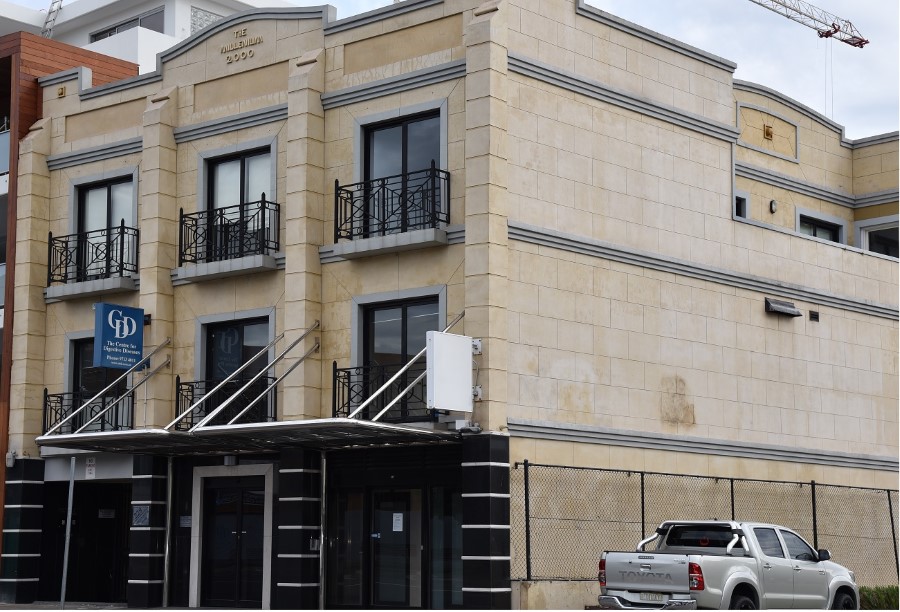
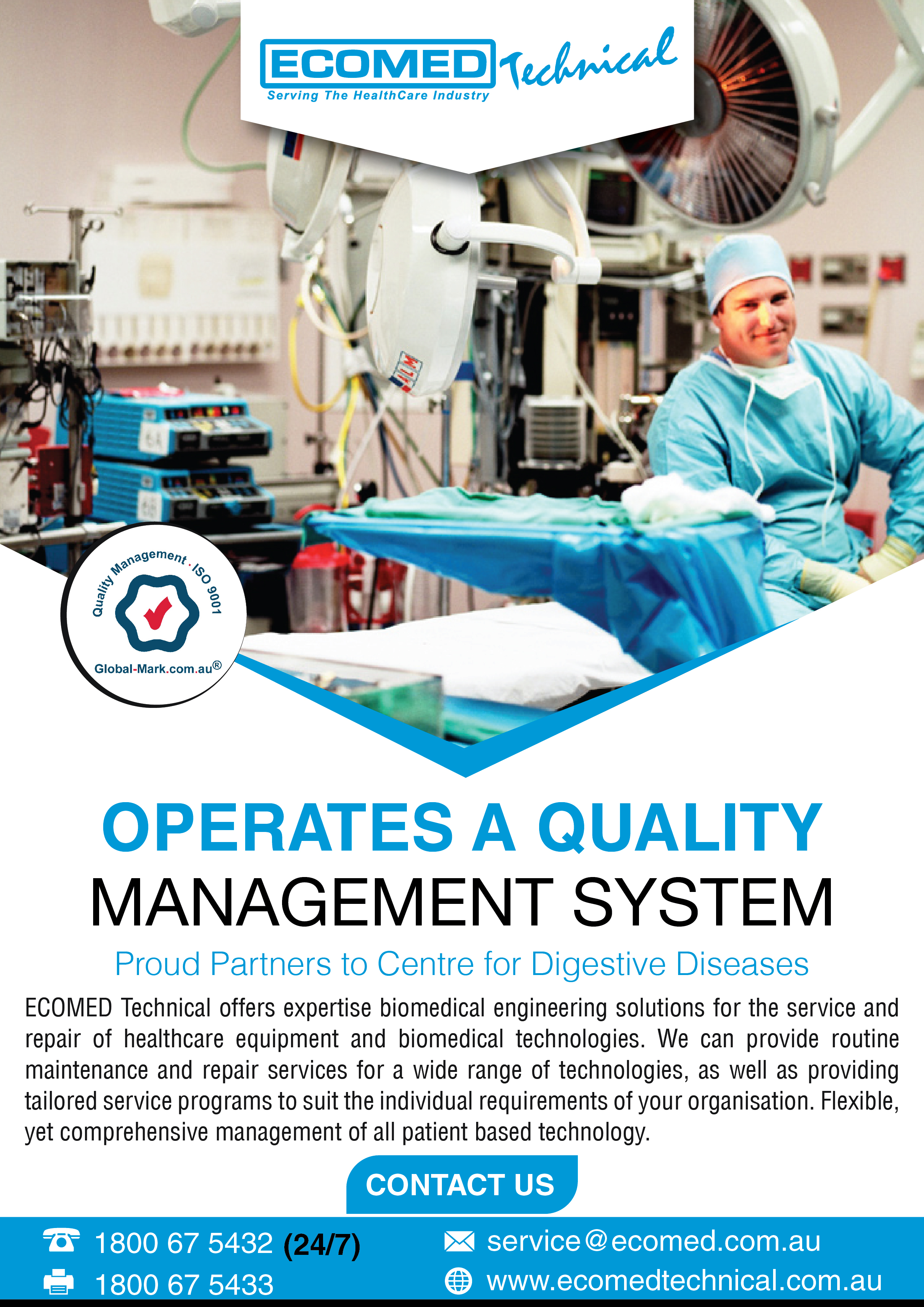
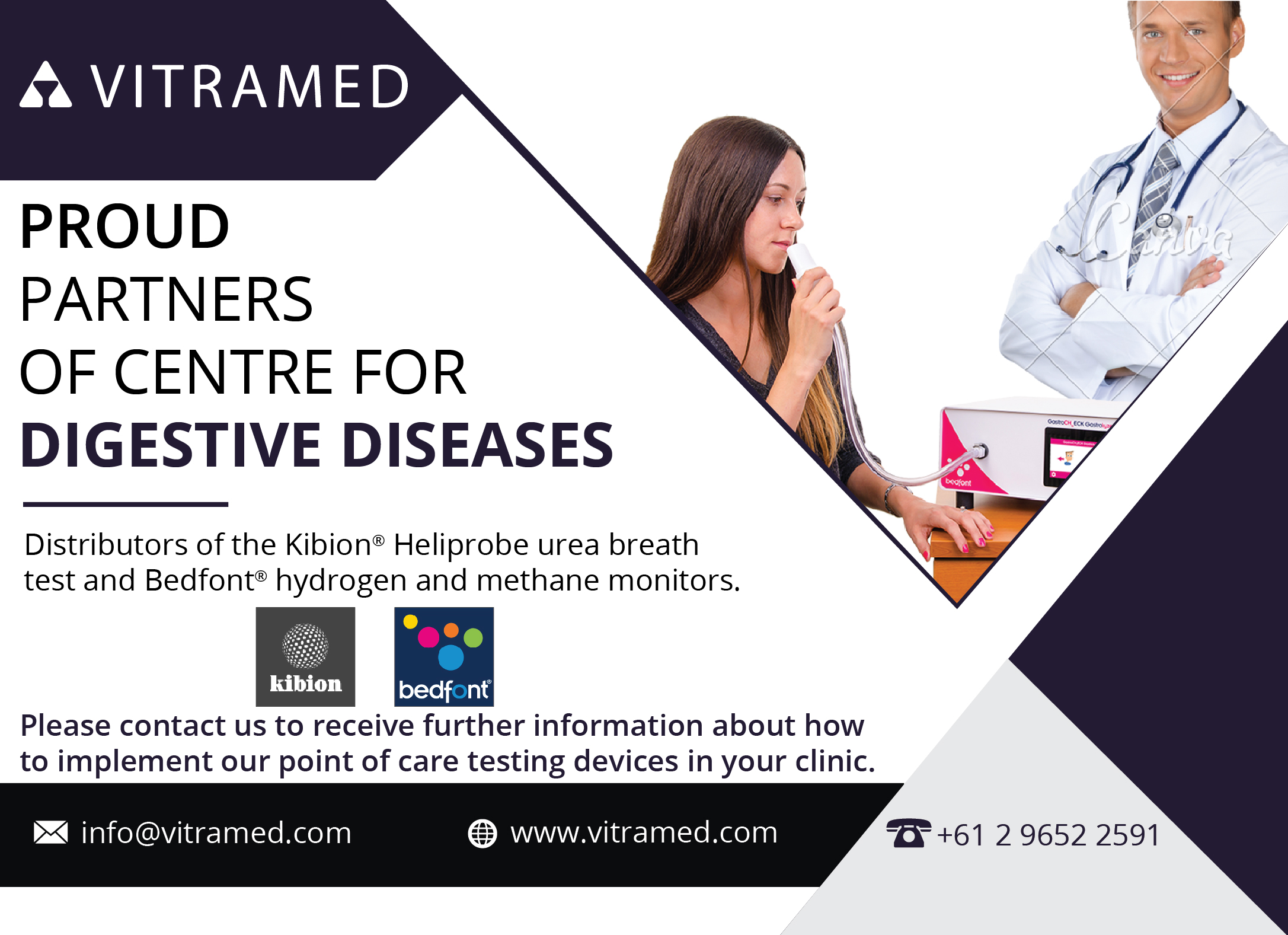
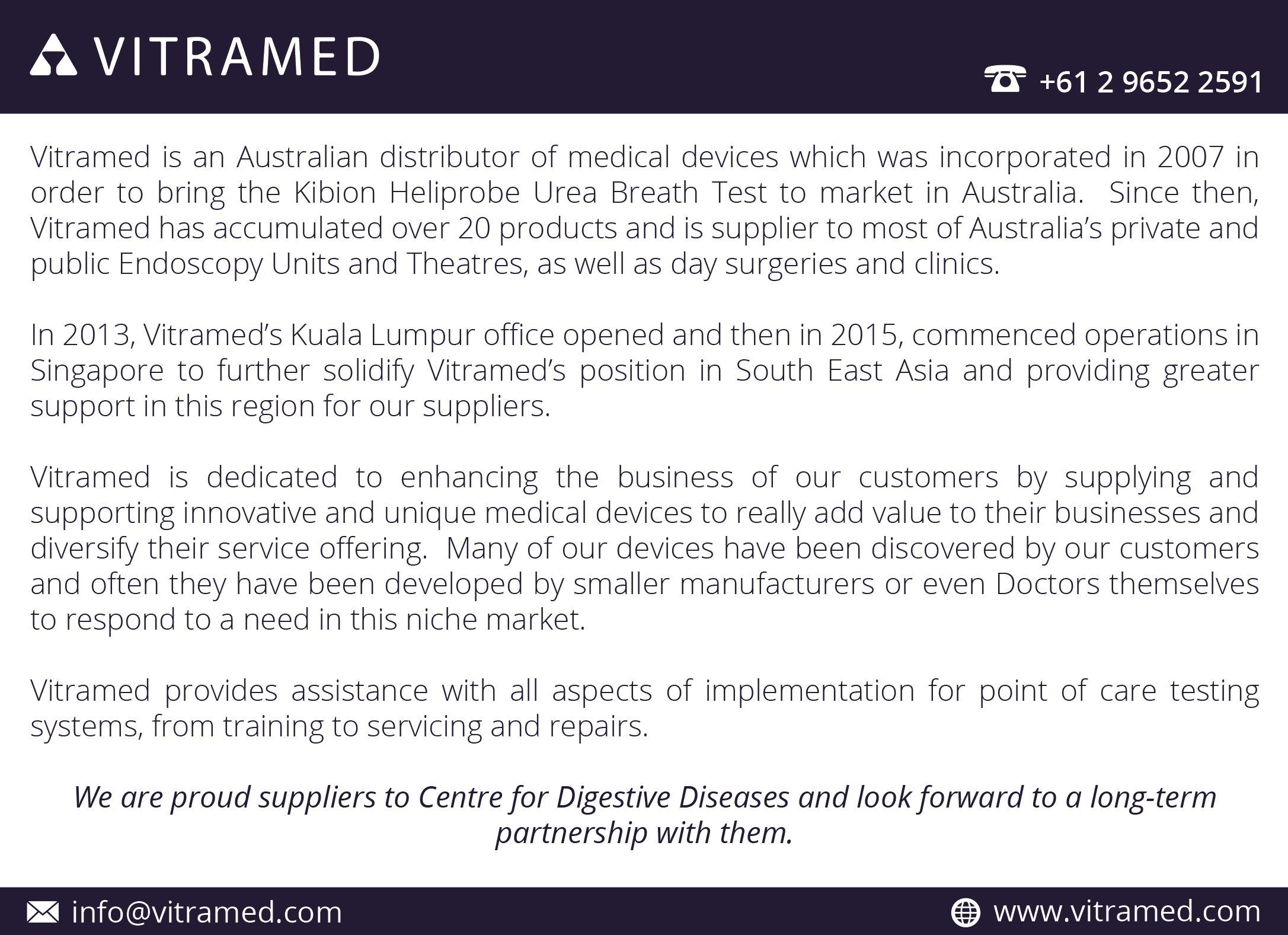
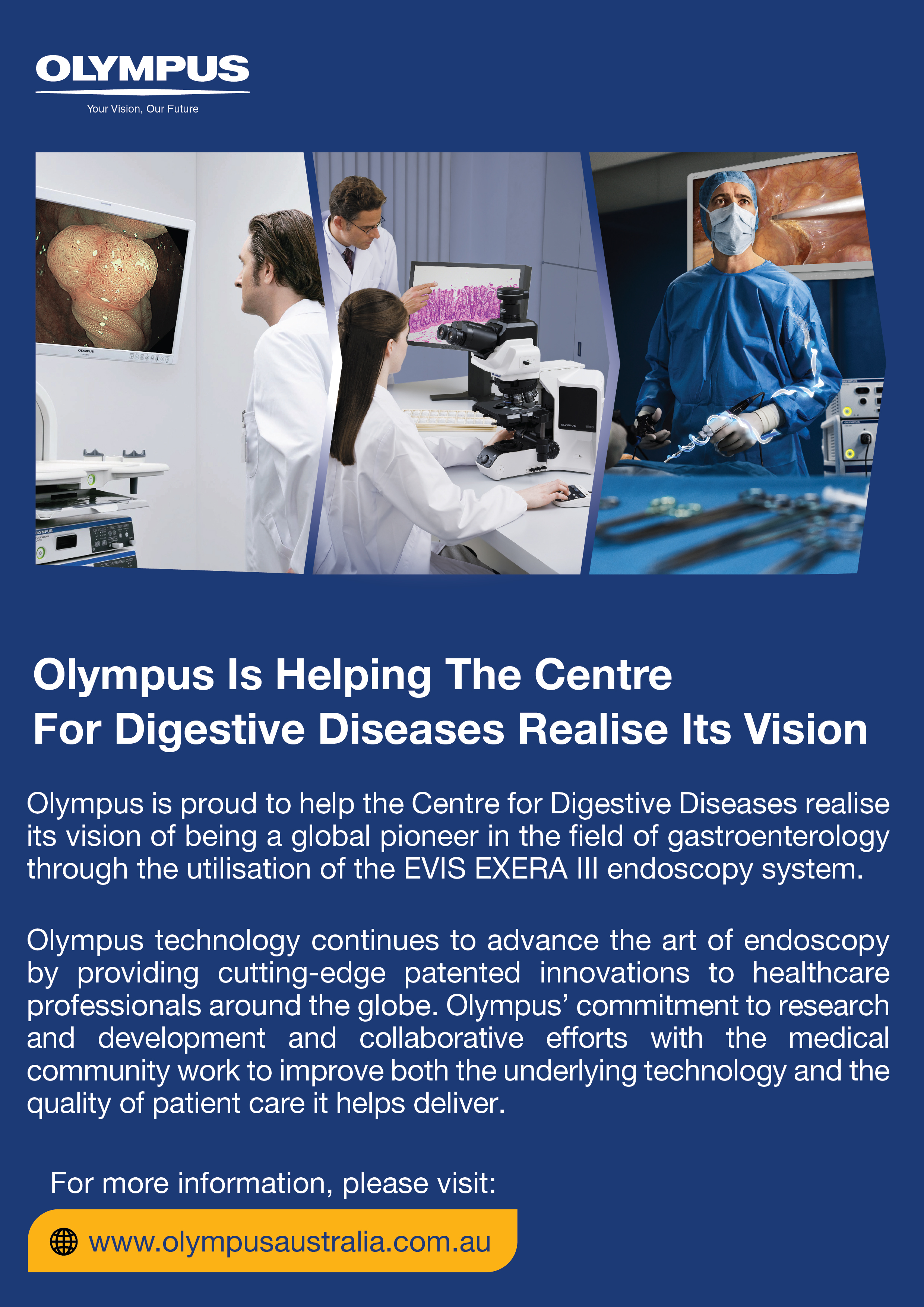
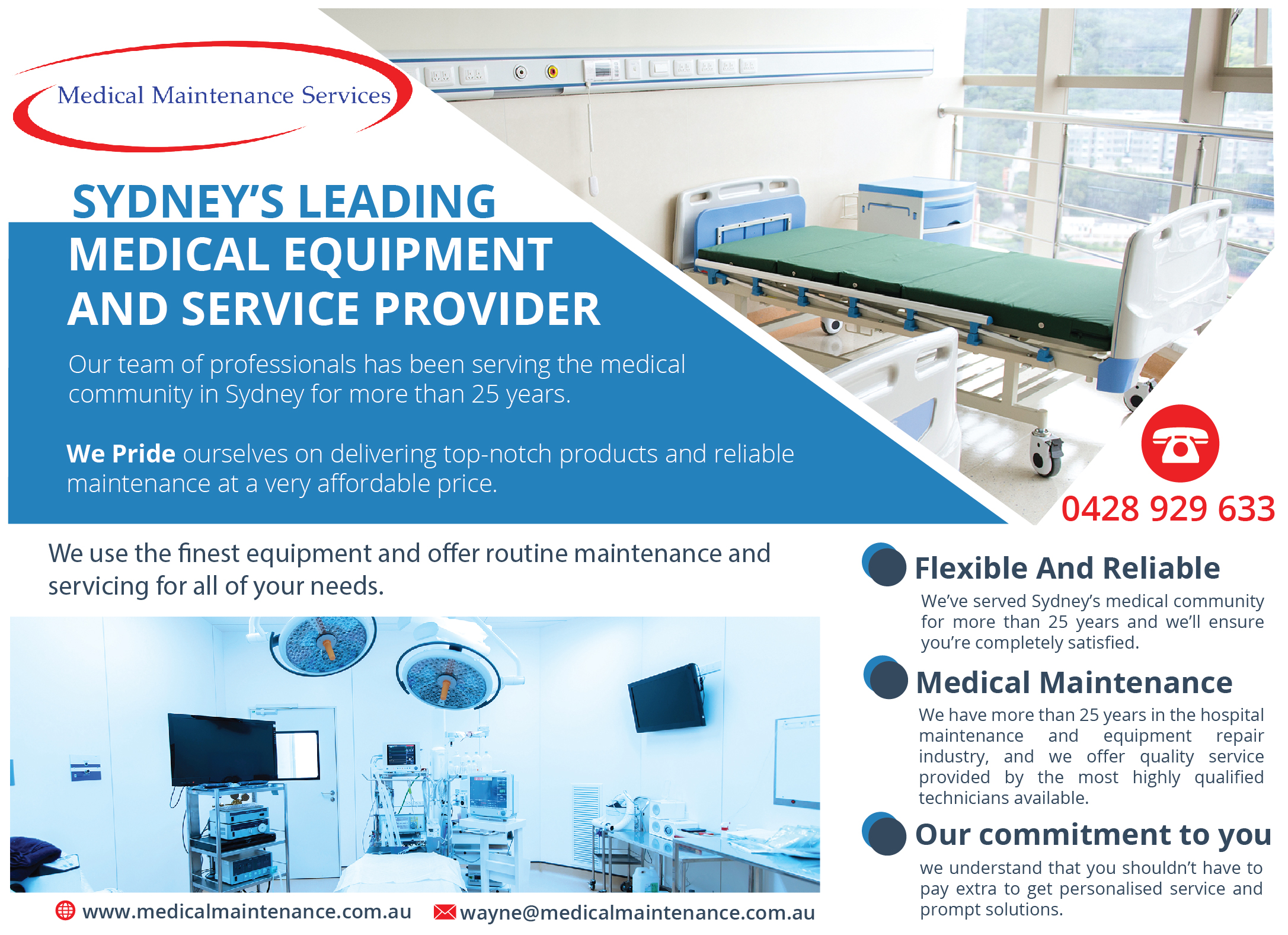
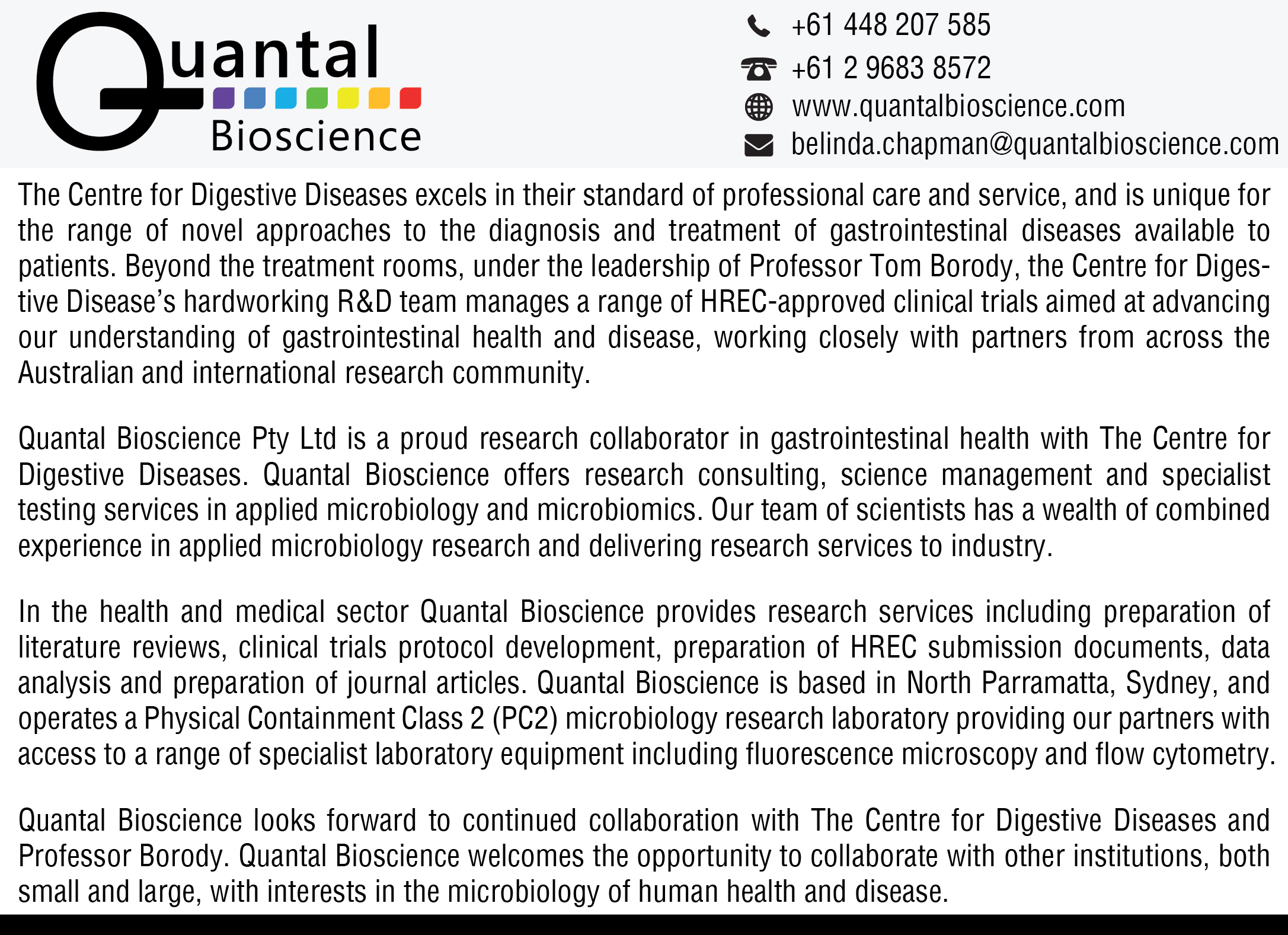

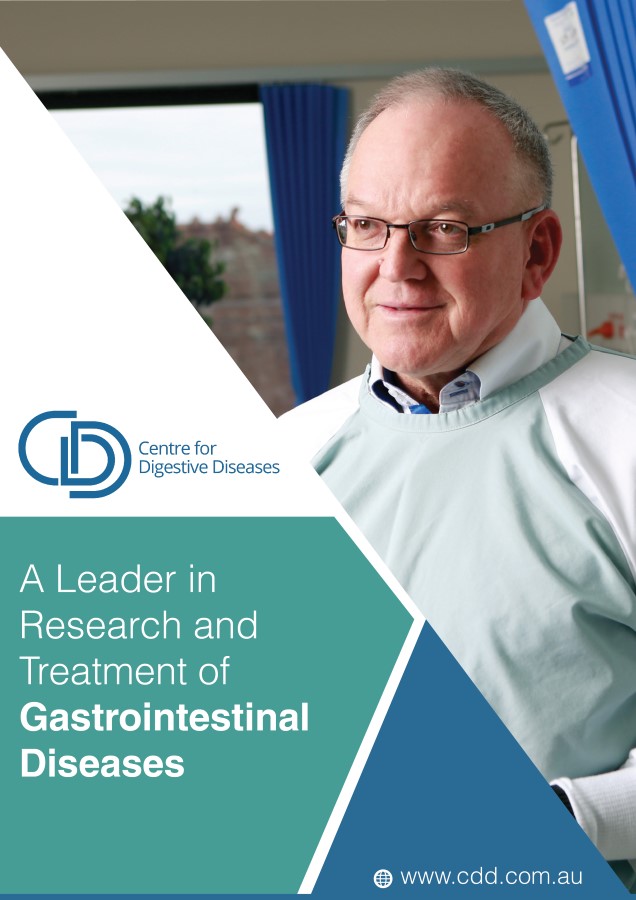
 This information will never be shared to third parties
This information will never be shared to third parties